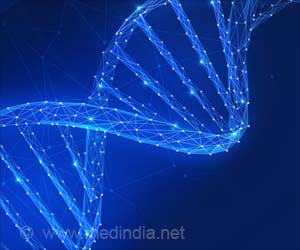A team of researchers have found that powerful tests produce more questions than they answer while large genetic testing panels promise to uncover clues about patients with breast cancer.

Large genetic testing panels sometimes reveal mutations in genes that are associated with an increased risk in developing cancer. BRCA 1 and BRCA 2 genes are prime examples, where women can opt for mastectomies and ovary removal surgery-which research shows slashes their risk of developing those cancers. However, there is not yet guidance for clinicians on how to care for patients who exhibit other types of mutations, such as CHEK2 and ATM. These are known as variants of unknown significance (VUS).
"We're in a time where the testing technology has outpaced what we know from a clinical standpoint. There's going to be a lot of unknown variants that we're going to have to deal with as more patients undergo large genetic testing panels," said Maxwell. "It's crucial that we figure out the right way to counsel women on these issues, because it can really provoke a lot of anxiety for a patient when you tell them, ‘We found a change in your DNA and we don't know what it means.'"
The team, which includes Susan Domchek, MD, the Basser Professor in Oncology and director of the Basser Research Center for BRCA in Penn's ACC, and Katherine Nathanson, MD, an associate professor in the division of Translational Medicine and Chief Oncogenomics Physician for the ACC, studied 278 patients who had been diagnosed with breast cancer under the age of 40, were not carriers of the BRCA1 or BRCA2 mutations, and had no family history of ovarian cancer.
The researchers performed massively parallel gene sequencing to detect 22 known or proposed breast cancer susceptibility genes in each woman. Though the testing did reveal multiple variants of genes that are known to confer increased risk of breast cancer in patients who develop the disease young, only 2.5 percent of patients tested were found to have mutations that are actionable under current treatment guidelines, including TP53, CDKN2A, MSH2, and MUTYH.
In all, the sequencing revealed reportable variants in over 30 percent of the patients.
"Knowing there is a mutation may not help us any more than knowing that the person has a positive family history - which we already know," Nathanson said. "We don't know yet what to do with the information on an individual basis, and there certainly are no clinical standards."
Advertisement
"We need to be very careful with how we use this data," Maxwell said. "You could be taking someone who thinks they're not at risk and making them at risk, or taking someone who is believed to be at risk and relieving them of that risk, but we don't know enough yet to be confident in our assessments of these findings."
Advertisement
Source-Newswise














